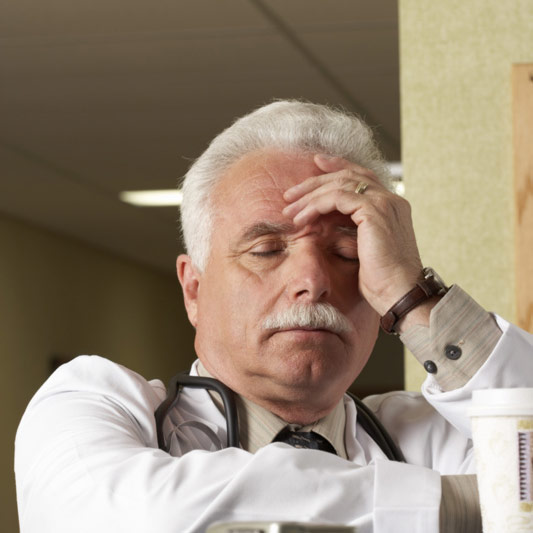
MONDAY, June 13 (HealthDay News) — When wives can’t fall asleep, that tends to trigger marital tensions the next day, a new study suggests, whereas the sleep issues of husbands barely impact spousal relationships.
Researchers tested the sleep patterns of 35 young and healthy married couples for 10 nights using noninvasive sensors that monitored rest and activity cycles. Wives with sleeping difficulties sparked significantly more negative marital interactions the next day, according to the research, which is to be presented Monday in Minneapolis at the annual meeting of the Associated Professional Sleep Societies.
“The findings suggest a wife’s prolonged inability to sleep predicts her own and her husband’s marital interactions, which tend to be more negative and less positive,” said Wendy Troxel, an assistant professor of psychiatry at the University of Pittsburgh School of Medicine and the study’s lead researcher.
Troxel said the couples, mostly white professionals with an average age of 32, used electronic diaries to give daily assessments on whether their marital interactions were negative, such as being ignored or criticized, or positive, such as being cared for and supported. The results were independent of depressive symptoms.
For wives who had trouble going to sleep, marriage interactions turned substantially more negative than positive for both partners, the study found. In contrast, when husbands slept poorly, there was little difference in how the couples related the next day.
“Women are generally more expressive and tend to drive the emotional climate of a couple’s relationship,” Troxel explained. Wives who can’t sleep are more likely to express stress, be irritable and verbalize their feelings, she said.
“Men are more likely to repress their feelings or not be as aware or tuned into the climate of change taking place,” Troxel added.
Though a wife’s inability to sleep may stir negative feelings in a marriage, other problems in the relationship can also result in bedtime insomnia, sporadic wakefulness during the night and inadequate deep sleep, Troxel noted.
“It’s a cyclical process that can get under the skin of couples and put them into negative trajectories when it comes to their mental health and well-being,” Troxel said. “Sleep problems need to be clinically addressed and perhaps marriage therapy started if the relationship is in trouble.”
Dr. Clete A. Kushida, director of the Center for Human Sleep Research at Stanford University, said that the study is unique for linking the inability to sleep to how couples interact the next day.
“Focusing on the impact of poor sleep in terms of positive or negative marital interactions the next day is an interesting spin on the data,” Kushida said.
This adds to an awareness of the interpersonal consequences and emotional distress that can result from sleeplessness, he said.
“When a physician validates a sleeping complaint, it’s important to bring the spouse in to find out how their partner’s lack of sleep affects them as a person, influences their mood or impacts their relationship,” Kushida said.
Previous studies by Troxel found the stable presence of a husband or partner predicted better sleep quality in women, and wives who were happy in their marriages reported fewer sleep disturbances. Data from the current research is now being analyzed to determine the precise types of marital behavior and interpersonal consequences that occurred after a night of bad sleep.
Overall, the new study found stronger evidence linking sleep to the next day’s marital interactions rather than the reverse direction, Troxel added.
“Intuitively, it makes sense that you don’t function at your best when you’re sleep-deprived, but there’s shockingly little data on how this affects marital relationships,” Troxel said.
The study was funded by the U.S. National Heart, Lung, and Blood Institute and the Clinical & Translational Science Awards.
Research presented at medical meetings should be considered preliminary until it is published in a peer-reviewed medical journal.
More information
Kansas State University has advice on getting a good night’s sleep.

